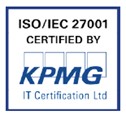Get to Know Us | Mikko Heinonen, Senior Partner, M&A, Helsinki
16 March 2020
How did you become a lawyer at Hannes Snellman?
Back in 1996 when I was studying law at the University of Turku, I decided that I was going to look for summer jobs in Helsinki. At that time, I thought that I would end up working for a large corporation as an in-house counsel, so building a long career as an attorney was not my primary plan when I started as a summer trainee at the firm.
In the 1990s, law firms already had their own distinct profiles even though branding was much less developed than currently and there were no established trainee programmes like the ones we have now. Already back then, Hannes Snellman felt like a solid, professional, non-hierarchical, and human-sized firm. I decided to come by the office and deliver my application in person, and I ended up being interviewed by Antti Heikinheimo on that very same afternoon. That is how it all started. I have, however, had this feeling that even if I had not started at Hannes Snellman at that time, I still would have found my way here, as the distinct values and culture of the firm continues to appeal to me.
What is your work history like?
In the past twenty years, the work of an attorney has changed quite significantly. These days, lawyers are a lot more focused and specialised in more narrow fields of practice, whereas twenty years ago big companies would call “their lawyer” – the same trusted individual – for whatever legal matter they had in mind. In the 1990s, everyone still sort of did everything, apart from the best tax lawyers who only did tax-related work.
In 1998, a few years after I joined the firm, Finnish national merger control regime entered into force, as a result of which transactions of a certain size had to be notified to the Finnish Competition Authority. I spent the following few years working primarily with competition law.
In the late 90s and early 2000s, the City of Turku had an emerging biotechnology and start-up community, so our firm decided to expand its operations there. I was fortunate to get to be involved in establishing our local office in Turku and also moved back to Turku in 2000. I became a partner in 2003, and I worked in our Turku office until 2005. During this time, I learned a thing or two about biotech companies, start-up financing, IPOs, and corporate governance.
During the academic year 2001-2002, I took a “sabbatical”, completed an LL.M. at Harvard, and passed the New York Bar Exam.
From 2011 to 2019, I acted as the managing partner of our Helsinki office. This brought an extra administrative element to my work. As from March 2020, I was appointed as the firm’s senior partner.
How were you able to combine assignment work and your tasks as the managing partner in your work?
This is the classic dilemma: how to combine “production and managing” in a professional services organisation. There is no right formula, and the balance between client work (which is necessary in order to maintain an identity as a professional) and the administrative and general managerial tasks (which usually take all the time available) is a tough one, but the fun is in the trying!
To me, management in a professional services firm is foremost about facilitation and ensuring that our fantastic colleagues are empowered and driven to excel for the benefit of our clients.
What new will the senior partner role bring to your daily work routines?
The role of the senior partner is to look after the partnership – for example to ensure cohesion among partners, manage partner promotions, and look after of our firm’s values. There are no daily routines for the senior partner but I suppose the position needs to be visible in a way on a daily basis. Fresh on the position, I believe that the senior partner needs to participate proactively in various discussions, intervene early where necessary, and maintain an open dialogue between partners to avoid misalignment and mistrust.
How international is your work?
My work is international in every aspect. A first-tier law firm with a corporate client base is typically involved in complex and international (even multi-jurisdictional) assignments requiring input from various specialists and other service providers. We work with and even compete against global firms, so we are measured against international standards. This is reflected in our service level, advice provided, documents drafted, and our general ambition level. We benchmark ourselves against the best international law firms.
What is the best part and what is the most challenging part about your work?
To both questions, my answer is the same: people. I am proud of my colleagues, who are motivated, dedicated to their work, and keen to be working with complex legal and practical questions. That is the best part of my work. The most challenging part is to manage and coordinate legal streams and large teams in complex, intensive, unique, and often cross-border projects with legal questions involving, for example, corporate, tax, competition, financing, labour, real estate, and intellectual property law.
Do you have time for any free-time activities?
Definitely. My work is obviously part of my identity, but I am also passionate about my life and activities outside work. Family life (as balanced as possible), nature and the Finnish archipelago are very close to my heart, and various outdoor activities, such as fishing, hunting, boating, logging, and jogging are my (and my family’s) favourite ways of spending weekends and holidays. I used to be an eager birdwatcher, and even though birdwatching is no longer an active hobby of mine, I am still interested in birds and I often carry a pair of binoculars with me when outdoors.
What advice would you give yourself on your first day at law school and on your first day working in a law firm?
Take studying seriously, but also remember to make use of the academic freedom and explore any other academic interests that you may have. It is a great time to build contacts and a network. However, also remember that what people get to know about you is more important than who you get to know along the way – as a lawyer, your character and reputation are crucial and you cannot easily change the first impression or the way you are perceived by others.
When you are starting your journey as an attorney, you should have an open mind and be keen to explore areas of law and practice that might not feel right for you at first. Along the way, you will find the path that will take you towards your own professional profile – your true self in every regard.
Want to know more about working at Hannes Snellman? Please pay a visit to our Careers section.





